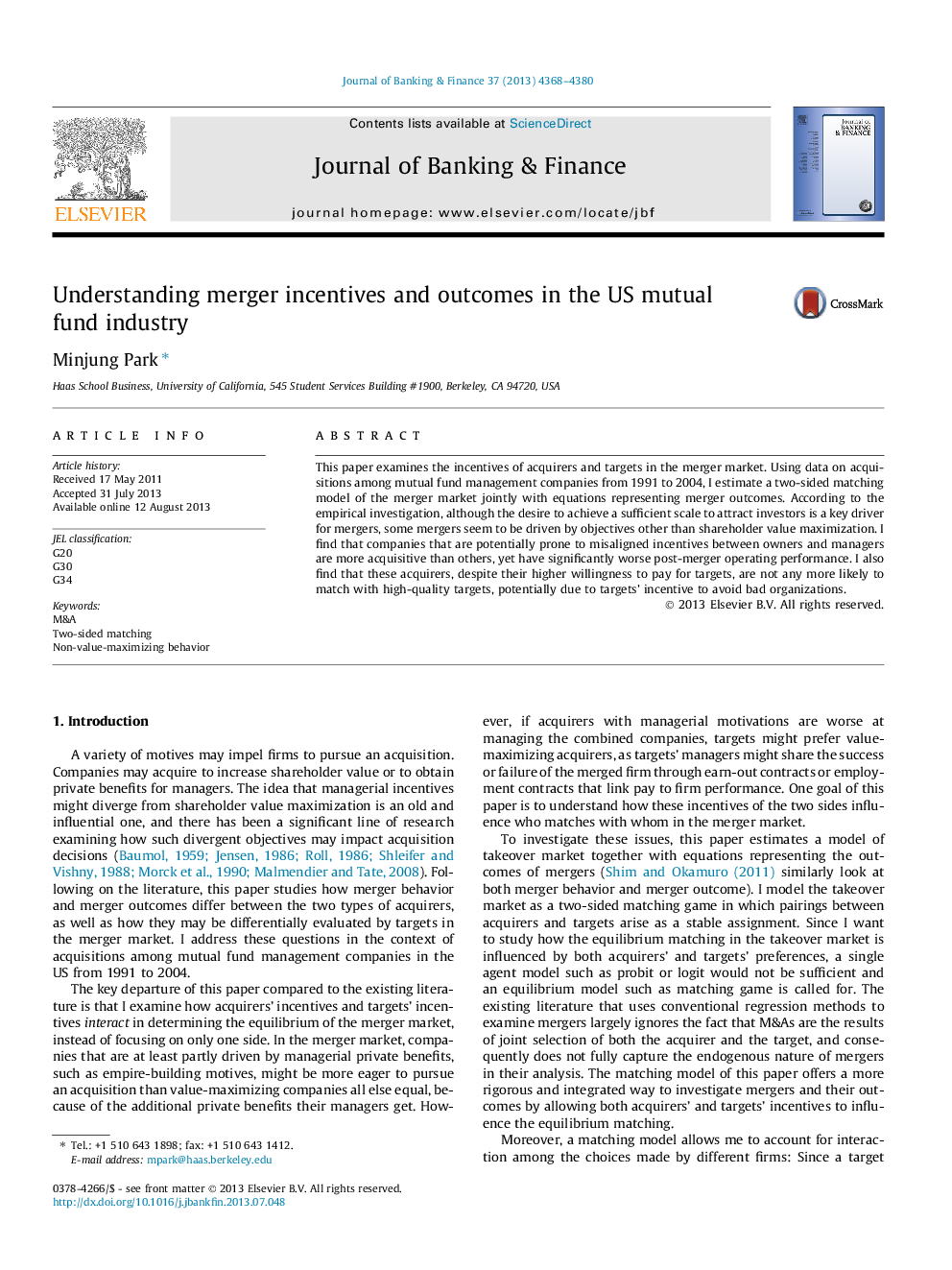| Article ID | Journal | Published Year | Pages | File Type |
|---|---|---|---|---|
| 5089162 | Journal of Banking & Finance | 2013 | 13 Pages |
Abstract
This paper examines the incentives of acquirers and targets in the merger market. Using data on acquisitions among mutual fund management companies from 1991 to 2004, I estimate a two-sided matching model of the merger market jointly with equations representing merger outcomes. According to the empirical investigation, although the desire to achieve a sufficient scale to attract investors is a key driver for mergers, some mergers seem to be driven by objectives other than shareholder value maximization. I find that companies that are potentially prone to misaligned incentives between owners and managers are more acquisitive than others, yet have significantly worse post-merger operating performance. I also find that these acquirers, despite their higher willingness to pay for targets, are not any more likely to match with high-quality targets, potentially due to targets' incentive to avoid bad organizations.
Keywords
Related Topics
Social Sciences and Humanities
Economics, Econometrics and Finance
Economics and Econometrics
Authors
Minjung Park,
